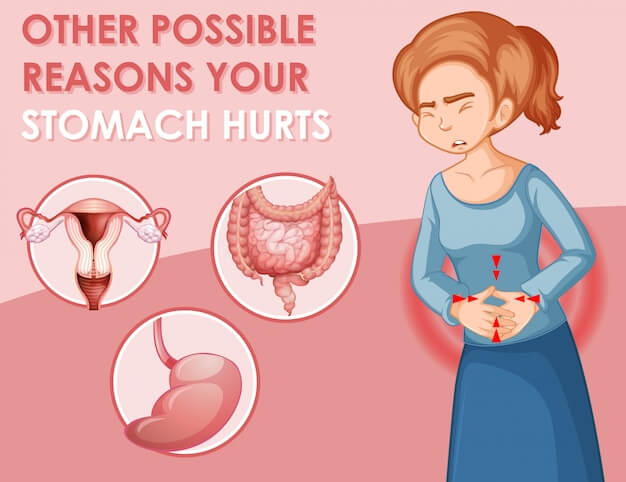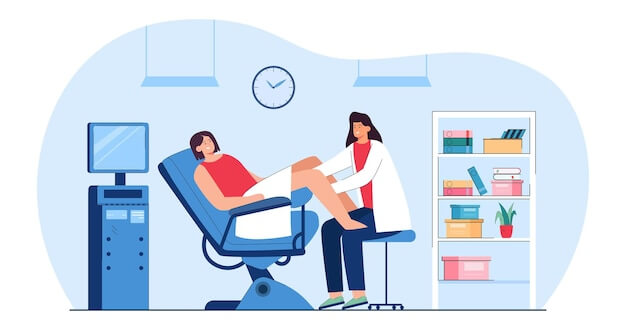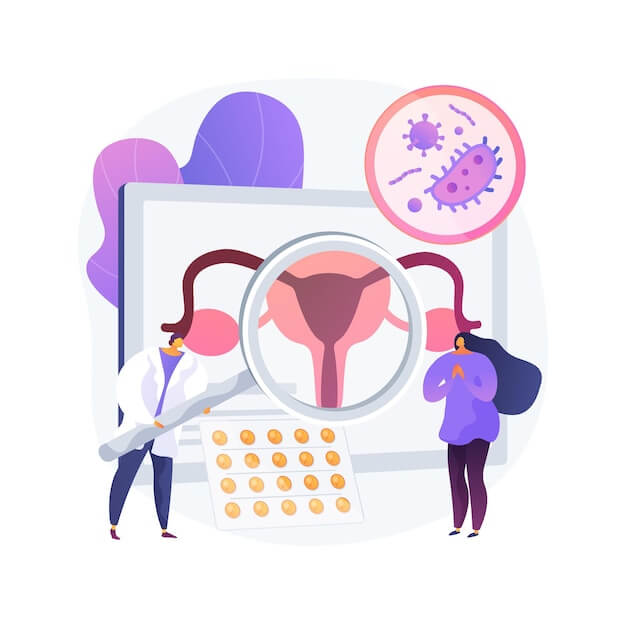An obvious feature of autumn that is different from summer is that the temperature drops, the weather is unpredictable, and the temperature difference between morning and night is large, which has become one of the main causes of female biological clock disorder, endocrine disorder and bacterial infection in autumn. In addition, the resistance of the human body decreases relatively in autumn, which is also a time of high recurrence for patients with gynecological diseases.
It is reported that the number of patients with vaginitis, pelvic inflammation and cervicitis has increased significantly since autumn and winter. Without careful prevention and active treatment, it is easy to aggravate the inflammation, spread to the uterus and accessories, and seriously affect the physical and mental health of women.
Let's take a look at the three types of gynecological inflammation that female friends should be most alert to after the beginning of autumn. Don't let them stare at you!

- Vaginitis
Vaginitis is the most vulnerable gynecological disease. A little spark can start a prairie fire, and bacteria often play the role of spark.
Women suffering from vaginitis often manifested as pruritus of the vulva, sometimes with burning pain, increased vaginal secretions, and accompanied by odor, which are typical symptoms of vaginitis. The most intolerable is vulval pruritus, which usually worsens at night, making many girls sleep and eat uneasily. In addition, vulva itching is also easy to repeat, difficult to cure, many girls gnash their teeth at it.
Preventive measures:
① During the treatment, keep the vulva clean and prohibit sexual life; Take a shower, change your underwear every day, and use a squatting toilet.
② The husband can take targeted treatment at the same time.
③ When the pudenda is itchy, do not scratch or scald with hot water to avoid scalding; Clean the genitals with clean water every night. Avoid eating spicy food, smoking and drinking to avoid dampness and heat.
④ It is suitable to eat light food, fresh fruits and vegetables, etc. They often eat millet porridge, buckwheat porridge, mung bean soup and barley porridge.

- Pelvic inflammation
Pelvic inflammation is also a kind of gynecological disease that is easy to repeat. As long as the bacteria in the vulva are retrogradely infected, they can reach the pelvic cavity through the uterus and fallopian tubes to induce pelvic inflammation. Women with low resistance or whose natural defense function is damaged due to other reasons are its "invasion targets". The general symptoms are increased leucorrhea, fever, lower abdominal pain, sometimes nausea, and general fatigue. Pelvic inflammatory disease has a long history and is stubborn. It is also a "disaster" that women fear to avoid.
Preventive measures:
① The patients with yellow leucorrhea, large quantity and thick texture belong to the damp heat syndrome. They should not eat anything greasy or spicy when frying or baking.
② Patients with cold pain in the lower abdomen, fear of cold, and pain in the waist, belong to the cold congealing qi stagnation type, and can be given warm food such as ginger soup, brown sugar water, and longan meat.
③ Those who are in a hot mood and have lumbago are mostly kidney yin deficiency. They can eat meat and eggs to nourish and strengthen their health.

- Cervicitis
The cervix is an important line of defense for female friends to prevent pathogenic microorganisms from entering the uterus, fallopian tubes and ovaries. The most common bacteria causing cervicitis are Staphylococcus, Escherichia coli, Streptococcus, Pseudomonas aeruginosa, viruses, trichomonas, etc. The main manifestations are leukorrhea, yellowing, cervical congestion, edema, lumbosacral pain, pelvic depression, dysmenorrhea, etc.
Preventive measures:
① First of all, regular gynecological examination (such as cervical smear examination once a year) should be carried out in order to find cervicitis as early as possible and treat it.
② During menstruation and postpartum, sexual life should be strictly prohibited to avoid pathogens.
③ The gynecological surgery should be performed by an experienced doctor, and the operation should be sterile and gentle to prevent iatrogenic infection and injury.
